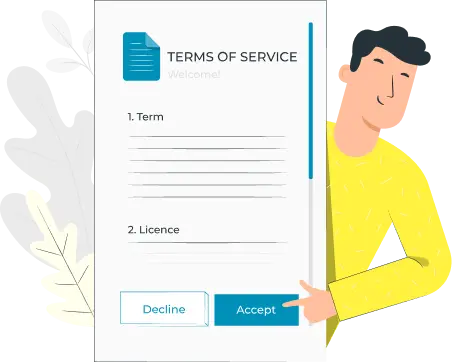Employee Value Proposition (EVP) is a clearly defined statement that outlines the rewards and benefits employees receive in exchange for their work. It encompasses not just tangible rewards like salary and benefits but also intangible elements such as work culture, career development opportunities, and the company’s mission and values. Essentially, the EVP answers the question: “Why should someone work for this company?”
A successful Employee Value Proposition is built around several key components that address different aspects of the employee experience. These components ensure that the EVP resonates with employees across all levels and departments. Here are the primary elements:
Competitive compensation is often the first thing potential employees consider when evaluating a job offer. A strong EVP provides clarity on salary packages, bonuses, healthcare, retirement plans, and other financial benefits. However, it’s not just about offering high salaries—it’s about providing value through a comprehensive benefits package that meets employees' needs, such as work-life balance, flexible hours, or wellness programs.
Employees are increasingly looking for roles that offer growth and development. Career development is a crucial part of an EVP, encompassing training programs, mentorship, upskilling opportunities, and clear career progression paths. Employers who invest in their employees’ professional growth are more likely to retain talent and cultivate a motivated workforce.
The work environment and organizational culture play a significant role in shaping an EVP. A positive and inclusive culture where employees feel valued, respected, and engaged fosters higher employee morale and productivity. This component may also include the company’s commitment to diversity, equity, and inclusion (DEI), teamwork, and collaboration, as well as the overall workplace atmosphere
Building and maintaining a strong Employee Value Proposition is essential for employers for several reasons:
In a competitive job market, a compelling EVP can set a company apart from its competitors. Talented individuals often have multiple job offers, and an attractive EVP helps draw attention to your organization by showcasing what makes your workplace unique. By highlighting both the tangible and intangible benefits, businesses can more effectively reach candidates who align with their culture and values.
Retaining talent is just as important as attracting it. Employees are more likely to stay with a company when they feel their contributions are valued and rewarded. A well-defined EVP fosters loyalty by ensuring that employees' needs and expectations are met, which helps reduce turnover. Satisfied employees are more likely to remain engaged, leading to higher productivity and lower recruitment costs over time.
An EVP that aligns with employees' values and career goals can significantly boost engagement. Employees who feel their company supports their professional growth, well-being, and work-life balance are more likely to be motivated and committed to their work. This, in turn, enhances overall productivity, creativity, and innovation within the organization.
Crafting an EVP requires a thoughtful approach that reflects both the company’s values and employees' needs. Here are some best practices for creating a strong EVP:
Before developing an EVP, it’s important to understand what motivates your employees. Conduct employee surveys, interviews, and focus groups to gather insights into what they value most about their work experience. This information will help you tailor your EVP to meet the specific needs and desires of your workforce.
Your EVP should not only resonate with employees but also support your organization’s mission and strategic objectives. A successful EVP aligns with the company’s broader goals, such as innovation, customer service, or sustainability, creating a sense of purpose that connects employees with the organization’s long-term vision.
Once your EVP is defined, it’s essential to communicate it consistently across all touchpoints—both internally and externally. This includes job postings, recruitment campaigns, onboarding materials, and ongoing employee communications. Transparency and authenticity are key to building trust with both prospective and current employees, ensuring that the EVP lives up to its promises.
An EVP should not be static. As the workforce evolves, so too should the EVP. Regularly review and update your proposition to ensure it continues to meet the needs of a changing workforce, whether that involves new employee benefits, flexible work arrangements, or enhanced career development opportunities.
An Employee Value Proposition (EVP) is a vital component of a company’s employer brand, shaping how employees and job candidates perceive the organization. A well-crafted EVP not only attracts top talent but also fosters employee engagement and loyalty, driving long-term success for the business.
For employers, building a strong EVP involves more than just offering competitive compensation—it’s about creating a holistic employee experience that resonates with the values, aspirations, and needs of your workforce. By continuously refining and communicating your EVP, you can create a workplace where employees feel valued, supported, and motivated to contribute to the company’s success.
Disclaimer: This article and all information in it is provided for general informational purposes only. It does not, and is not intended to, constitute legal or tax advice. You should consult with a qualified legal or tax professional for advice regarding any legal or tax matter and prior to acting (or refraining from acting) on the basis of any information provided on this website.
Choose Glints TalentHub as your partner in Southeast Asia.
Building your Team in
Southeast Asia with Glints' EOR Service

Rapid
Team Setup
Launch Southeast Asian operations in a week for a seamless start

Full Suite of HR Offerings
Launch Southeast Asian operations in a week for a seamless start

Guaranteed 100% Compliance
Ensure total HR and legal compliance with expert local guidance

Dedicated & Immediate Support
Get quick, dedicated HR support within 24 hours